So last week when we first got word about Google and Verizon cutting a deal to sidestep Net Neutrality protections, Google issued a statement saying everyone got it wrong and they weren’t doing nothing of a sort..You’ll can check out their statements HERE.
We come to find out that they were lying. That’s not a good look at all.. Here’s the deal the two companies crafted. Now as you read this statement here’s what you need to pay attention to: First, everything we ever needed and wanted with respect to Net Neutrality protections is in place for a PC or wired device.. But as more and more communities in particular communities of color are moving onto wireless and mobile spheres, all those protections are out the window…That is not a good look..
People who like to scream about regulations are 1-Not looking at this as a utility and 2-Don’t care that prices are likely to go up significantly unless you decide to scale back on doing what many of us have grown accustomed in terms of usage. When AT&T dropped their unlimited data plan, that was the first warning shot. Watching videos and and all that are not clogging up no one’s band width. That’s the story they tell to an unknowing public with the end game being to nickle and dime us for every little thing. The incentive is not just to make money, but to keep larger media corporations ahead of the all the little guys who are catching up and in many cases surpassing them.
From here on out this is gonna be a PR war with crazy Tea Party types yelling they hate socialism and communism with no true understanding of what those two words mean and how they apply to making sure we all have equal platforms to speak.. The ones yelling the loudest are usually shields for the telecoms deliberately trying to cause confusion.They are also corporate mouthpieces who work for media outlets who want to remain on top.
On the other hand, because Google is such a giant and has scared us half to death by hinting they might dead Net Neutrality, this ‘compromise’ which is NOT good now looks good when you consider how gully they could’ve gotten. Keep in mind they still can..
Our best bet is to yell loud and clear to our reps that you want Net Neutrality.. Please sign Al Franken’ s petition and don’t take no shorts on this issue. Don’t let Net Neutrality get compromised away they way we did public options in health care. There’s a reason these large telecoms have spent over a billion dollars in lobbying money. Lastly don’t be falling for the BS about we don’t need Net Neutrality that some Civil Rights org or leader like Jesse Jackson pushes. They sadly aligned themselves with the telecoms for a hefty fee.
Here’s Al Franken’s petition
http://www.alfranken.com/index.php/splash/netneutrality
-Davey D-
A joint policy proposal for an open Internet
Monday, August 9, 2010 at 1:38 PM ET
http://googlepublicpolicy.blogspot.com/2010/08/joint-policy-proposal-for-open-internet.html
 Posted by Alan Davidson, Google director of public policy and Tom Tauke, Verizon executive vice president of public affairs, policy, and communications
Posted by Alan Davidson, Google director of public policy and Tom Tauke, Verizon executive vice president of public affairs, policy, and communications
The original architects of the Internet got the big things right. By making the network open, they enabled the greatest exchange of ideas in history. By making the Internet scalable, they enabled explosive innovation in the infrastructure.
It is imperative that we find ways to protect the future openness of the Internet and encourage the rapid deployment of broadband. Verizon and Google are pleased to discuss the principled compromise our companies have developed over the last year concerning the thorny issue of “network neutrality.”
In October, our two companies issued a shared statement of principles on network neutrality. A few months later we submitted a joint filing to the FCC, and in an April joint op-ed our CEOs discussed their common interest in an open Internet. Since that time, we have listened to all sides of the debate, engaged in good faith with policy makers in multiple venues, and challenged each other to craft a balanced policy framework. We have been guided by the two main goals:
1. Users should choose what content, applications, or devices they use, since openness has been central to the explosive innovation that has made the Internet a transformative medium.
2. America must continue to encourage both investment and innovation to support the underlying broadband infrastructure; it is imperative for our global competitiveness.
Today our CEOs will announce a proposal that we hope will make a constructive contribution to the dialogue. Our joint proposal takes the form of a suggested legislative framework for consideration by lawmakers, and is laid out here. Below we discuss the seven key elements:
First, both companies have long been proponents of the FCC’s current wireline broadband openness principles, which ensure that consumers have access to all legal content on the Internet, and can use what applications, services, and devices they choose. The enforceability of those principles was called into serious question by the recent Comcast court decision. Our proposal would now make those principles fully enforceable at the FCC.
Second, we agree that in addition to these existing principles there should be a new, enforceable prohibition against discriminatory practices. This means that for the first time, wireline broadband providers would not be able to discriminate against or prioritize lawful Internet content, applications or services in a way that causes harm to users or competition.
Importantly, this new nondiscrimination principle includes a presumption against prioritization of Internet traffic – including paid prioritization. So, in addition to not blocking or degrading of Internet content and applications, wireline broadband providers also could not favor particular Internet traffic over other traffic.
Third, it’s important that the consumer be fully informed about their Internet experiences. Our proposal would create enforceable transparency rules, for both wireline and wireless services. Broadband providers would be required to give consumers clear, understandable information about the services they offer and their capabilities. Broadband providers would also provide to application and content providers information about network management practices and any other information they need to ensure that they can reach consumers.
Fourth, because of the confusion about the FCC’s authority following the Comcast court decision, our proposal spells out the FCC’s role and authority in the broadband space. In addition to creating enforceable consumer protection and nondiscrimination standards that go beyond the FCC’s preexisting consumer safeguards, the proposal also provides for a new enforcement mechanism for the FCC to use. Specifically, the FCC would enforce these openness policies on a case-by-case basis, using a complaint-driven process. The FCC could move swiftly to stop a practice that violates these safeguards, and it could impose a penalty of up to $2 million on bad actors.
Fifth, we want the broadband infrastructure to be a platform for innovation. Therefore, our proposal would allow broadband providers to offer additional, differentiated online services, in addition to the Internet access and video services (such as Verizon’s FIOS TV) offered today. This means that broadband providers can work with other players to develop new services. It is too soon to predict how these new services will develop, but examples might include health care monitoring, the smart grid, advanced educational services, or new entertainment and gaming options. Our proposal also includes safeguards to ensure that such online services must be distinguishable from traditional broadband Internet access services and are not designed to circumvent the rules. The FCC would also monitor the development of these services to make sure they don’t interfere with the continued development of Internet access services.
Sixth, we both recognize that wireless broadband is different from the traditional wireline world, in part because the mobile marketplace is more competitive and changing rapidly. In recognition of the still-nascent nature of the wireless broadband marketplace, under this proposal we would not now apply most of the wireline principles to wireless, except for the transparency requirement. In addition, the Government Accountability Office would be required to report to Congress annually on developments in the wireless broadband marketplace, and whether or not current policies are working to protect consumers.
Seventh, and finally, we strongly believe that it is in the national interest for all Americans to have broadband access to the Internet. Therefore, we support reform of the Federal Universal Service Fund, so that it is focused on deploying broadband in areas where it is not now available.
We believe this policy framework properly empowers consumers and gives the FCC a role carefully tailored for the new world of broadband, while also allowing broadband providers the flexibility to manage their networks and provide new types of online services.
Ultimately, we think this proposal provides the certainty that allows both web startups to bring their novel ideas to users, and broadband providers to invest in their networks.
Crafting a compromise proposal has not been an easy process, and we have certainly had our differences along the way. But what has kept us moving forward is our mutual interest in a healthy and growing Internet that can continue to be a laboratory for innovation. As policy makers continue to formulate the rules of the road, we hope that other stakeholders will join with us in providing constructive ideas for an open Internet policy that puts consumers in charge and enhances America’s leadership in the broadband world. We stand ready to work with the Congress, the FCC and all interested parties to do just that.







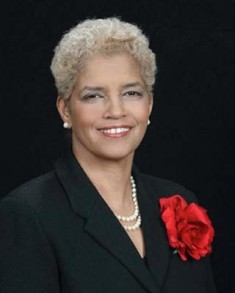

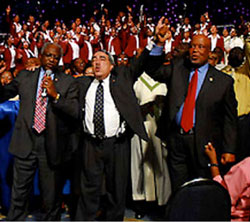
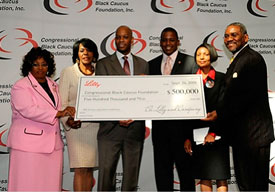
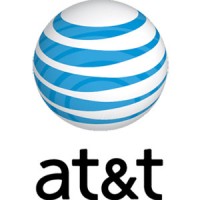


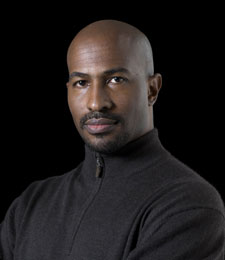

 The Supreme Court’s seismic January ruling that corporations are free to spend unlimited amounts of their profits to advertise for or against candidates may have been the latest shakeup of campaign finance – but gaping holes already allow corporations to spend enormous sums without leaving a paper trail, a Raw Story investigation has found.
The Supreme Court’s seismic January ruling that corporations are free to spend unlimited amounts of their profits to advertise for or against candidates may have been the latest shakeup of campaign finance – but gaping holes already allow corporations to spend enormous sums without leaving a paper trail, a Raw Story investigation has found.


